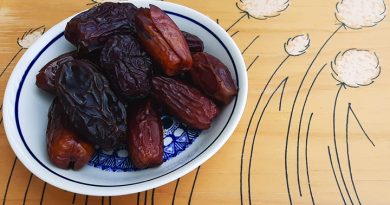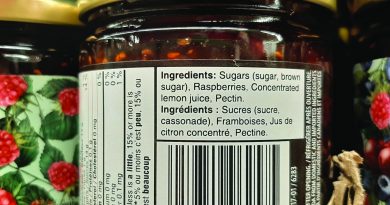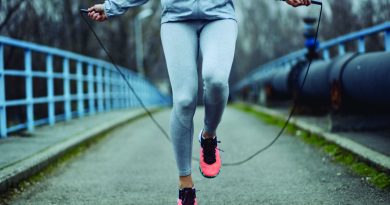A Purposeful Journey Of Food And Self Love
By Sari Huhtala
Bursting to give her spiel about the newest superfood she’s discovered, Sarah Williams heads out to visit her family. She arrives and with a smile from ear to ear begins to chat about her newest feel-good foods. They smile, roll their eyes and poke fun of her. It’s hard to assimilate all of this info when one’s not feeling that same zest for life.
One thing is for sure though, had she not diverted onto the path of conscious eating at the age of 11 when her weight peaked at 172 pounds she wouldn’t be waking up each morning embracing a new day feeling healthy vitality, 14 years later.
“Since the age of 12 my goal was to have my best life ever,” Williams, who was raised in Keswick, ON says.
Williams reminisces about the day she made her decision to turn her health around. She had glanced around the classroom, envious of the other girls who were thin and pretty, and she made a pact with herself to start making conscious changes so that she too could someday be like those girls.
No more party-size bags of chips to wolf down, no more overeating of junk foods and no more pop. Instead, when the family headed to McDonalds for dinner, like they did on many occasions, she would opt for a bottle of water. Small changes can make a big difference, she says. It wasn’t like her family didn’t eat home-cooked meals most days.
They did, in fact, but living with a lack mentality they overate, “snuffed up” food like it was their last meal. And it was never enough to split a bag of chips with the whole family. Everyone received their own party-size bag to enjoy, she remembers.
Swapping out foods – like popcorn instead of chips or no more high-sugar cereal for breakfast – was an easy way to make changes at that age, along with choosing a smaller bowl at meal time, she says. When the family headed out to McDonalds she not only swapped out the pop for water, but ordered only a burger, rather than a burger and fries. Small changes still make a difference.
While it’s challenging to carve out one’s own path to healthier eating as a youngster living in a family where everyone else was still eating junk food, what it really boils down to is self-discipline and purposeful eating, and choosing activities that would boost physical activity, she says.
“I wasn’t really active as a child,” Williams says. “I acted like a kid who stays at home and eats and watches TV.
“As soon as I said to myself that I was going to be thin I found things that would help me be more active. I got a paper route that forced me to be out on my bike for 80 minutes each day to deliver papers, and sometimes I ran the route.
“In high school instead of taking the bus I would walk to and from school each day, which meant that I was walking 10 kilometres every day. Instead of asking for a ride to a friend’s house, I would jump on my bike.”
“When I’d walk to high school instead of taking the bus my whole day was different. I had opportunities to skip along the way and say hello to strangers during the one and a half hour walk. I felt amazing. I was more focused in school, I was happier and more energized. The world looked different. When I was driven to school, I was less engaged during the day.”
Her weight consistently decreased, but it wasn’t until age 19 when she moved to Sudbury to study at Laurentian University that she really started to make the connection between real nutrition and real health, and the impact it would have on her day to day energy and vitality.
She embarked on an “unintended detox,” only buying organic foods, making all of her foods from scratch and loading up on live foods – not just the over-boiled veggies, meat and potatoes she had grown up with.
“I didn’t actually like the foods I cooked for the first while,” she remembers. “I used my brain to overpower my taste buds by saying things like ‘I will like this. This is really good for me.’ That’s how I grew to like all of the foods I was choosing to eat.”
This new way of eating awakened a whole new energy in her body – one that she hadn’t even realized was compromised while growing up.
“If I just ate something like a Kashi cereal for breakfast the amount of sugar would cause me to feel very weak and my energy levels would cause me to collapse,” Williams says.
“I’ve come to understand that I always felt sick and felt like I was going to faint when I was growing up because there was so much sugar in my body.”
She recollects feelings of weakness and dizziness and lacking energy since the age of eight, and had never connected it to lack of nutrition and overconsumption of sugar until around age 20 when she went on her unintended detox, she says.
Ear aches, strep throat, migraines, eczema, the flu and colds were all commonplace for her throughout her childhood and high school years, she recalls.
After a year of consuming only real, wholesome foods, and working through personal issues which were raising toxicity in her body due to stress, headaches were gone, her eczema cleared up and regular bouts of the flu were a thing of the past.
By age 22 she could toss on a pair of roller blades and go from one end of town to the next for a two-hour jaunt and never feel tired. That’s a far cry from her younger days at age 13 when she first started rollerblading and only made it for 10 minutes before feeling exhausted.
In her early 20s she began adding super foods like chia seeds, goji berries, kale and açai berry to her daily regime to boost her nutrition. She was even making her own kombucha, kefir and almond milk to ensure her body was receiving the purest form of nutrition, without any additives.
Through research she taught herself how to make just about anything from scratch, motivated by the purity of her food and the money that she saved. Sure, healthy eating can be expensive if one is purchasing only pre-made healthy foods, she says.
Learn to make foods yourself, she stresses, whether it’s dried beans that you boil, bag and freeze for later use, or even ice cream, if that’s what you crave.
A fun way to inspire herself to try new produce was to pick out a veggie that was foreign to her each time she went to the grocery store, like an artichoke or a cassava, then research online how to prepare that veggie. She’d also surround herself with like-minded people, even if it meant just browsing at a health food store or joining a yoga class.
“I’d frequent those places where people like me have bought into the mentality of healthy living.”
Meditation, counselling and spiritual retreats helped her cope with stressors and eliminate struggles with self-doubt and worry, as well as understand how she felt about herself and the connection with her physical state, which ultimately shifted her to this current place of undeniable love for herself.
“It wasn’t until I started doing purposeful emotional psychological work that I noticed if I ate food that wasn’t good for my body my mental state would deteriorate too.
“I can feel in my body when I’m not loving it properly and listening to it. I get grouchy and irritated when I haven’t eaten properly, I’m not thinking clearly and emotionally I’m not settled.
“Sometimes I feel myself slipping, but I remind myself how good I feel (after eating wholesome foods or exercising) and I do these things for me.
“If you want to have your best life ever then you have to get up and do this every day.”
“The more I delved into my emotional and spiritual connection the more I realized that the bad diet made me insecure and agitated. It made me forget who I am. If I’m aware of who I am and I’m eating in a way that makes me forget who I am then the relationships in my life aren’t strong because they’re not authentic because I’m not being authentic.”




